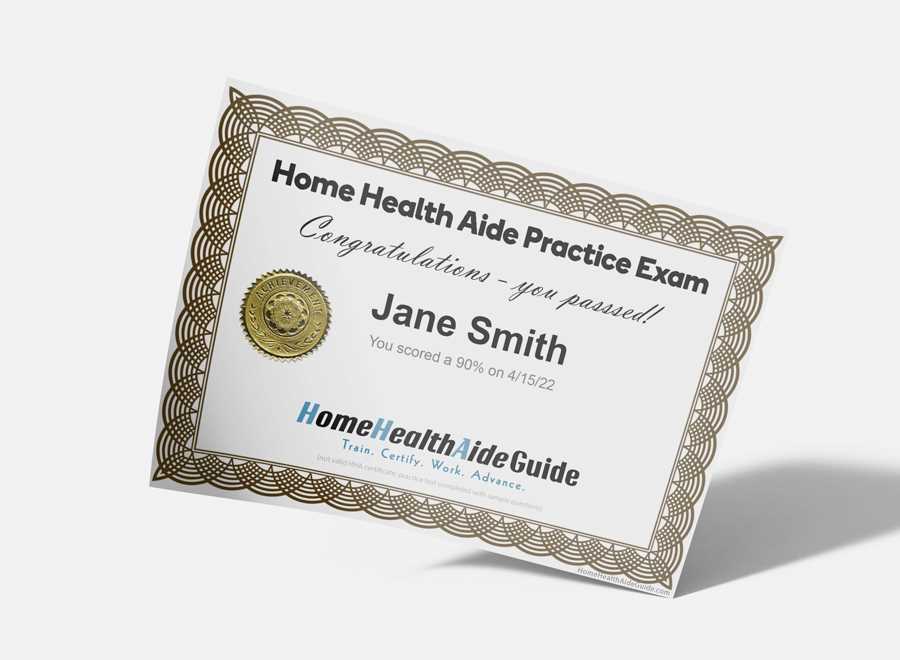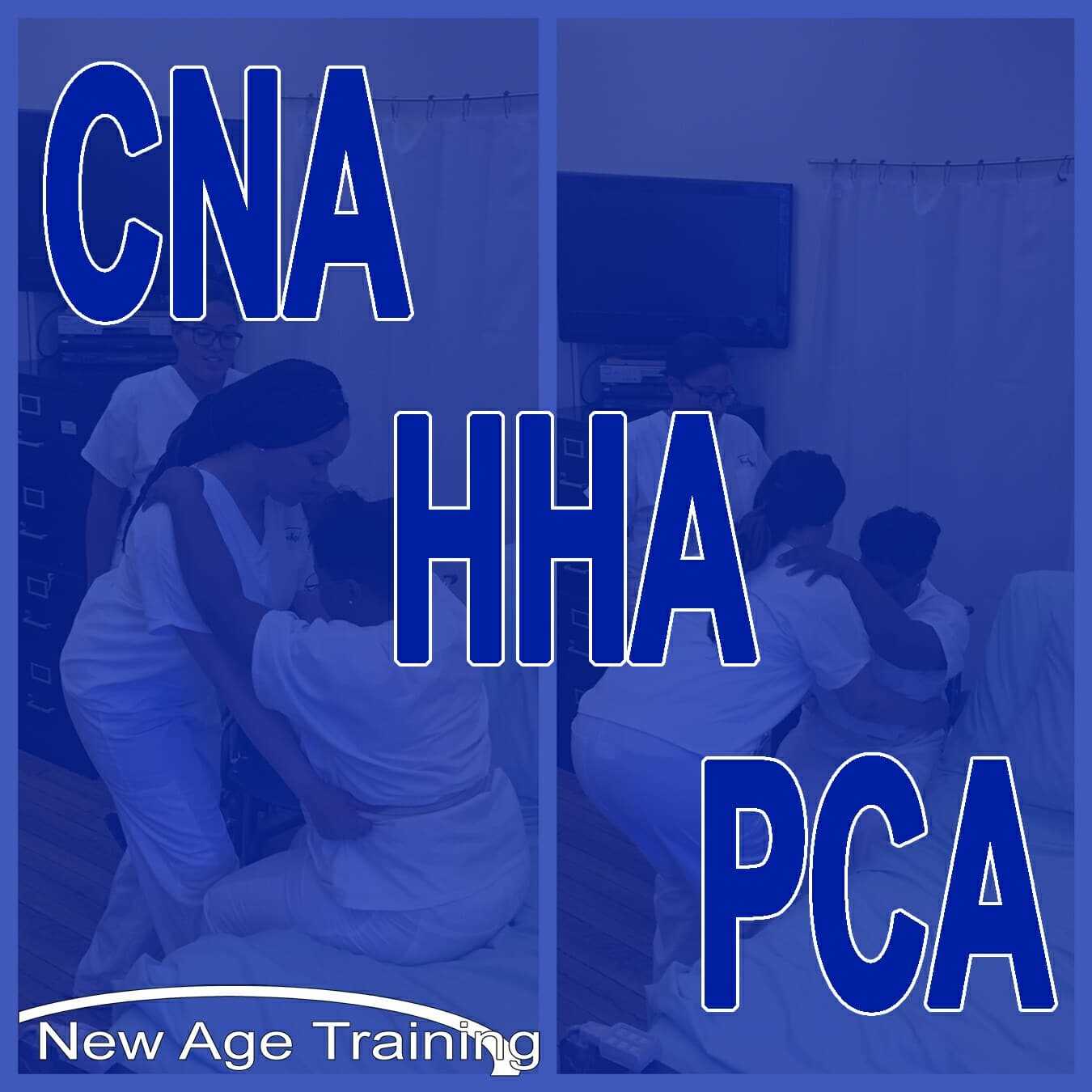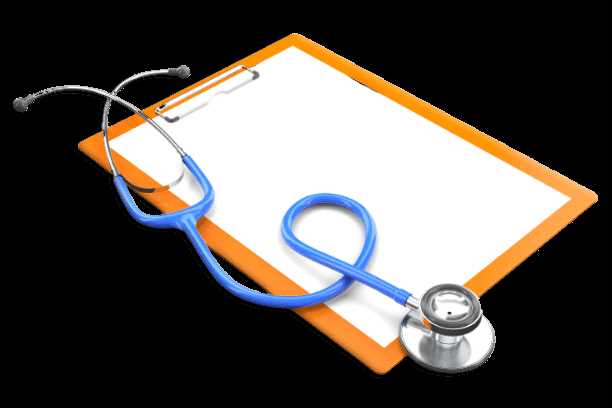
Preparing for a career in home healthcare requires a solid understanding of essential skills and knowledge. Successfully passing the certification test is crucial for those seeking to work in this field, as it verifies your expertise and readiness to provide high-quality care to patients in their homes.
In this guide, we will focus on effective strategies to prepare for the certification assessment. You will find insights into the core topics covered, as well as techniques to improve your ability to retain key information and tackle questions with confidence. Whether you’re just beginning your studies or nearing the test day, these tips will help you approach the process strategically.
By using practice materials, developing strong study habits, and familiarizing yourself with test expectations, you can increase your chances of success. With careful preparation, you’ll be ready to demonstrate your proficiency and secure your place in the home healthcare industry.
Comprehensive Guide to Home Health Certification Preparation
Successfully preparing for a certification assessment in the home healthcare field requires a focused approach. It involves not only understanding the key topics but also developing effective study habits and test-taking strategies. This section will provide you with a step-by-step guide to help you efficiently prepare and boost your chances of success.
Key Areas to Focus On
To pass the certification process, it’s essential to focus on the areas most likely to appear on the test. These topics include fundamental skills and knowledge required for providing care in home settings. The following areas should be prioritized during your study sessions:
- Patient safety and emergency procedures
- Basic hygiene and infection control practices
- Medical terminology and understanding patient conditions
- Communication skills with patients and families
- Documentation and reporting techniques
Effective Study Methods
Adopting the right study techniques can make all the difference in your preparation. Below are some practical strategies to help you retain information and approach the test with confidence:
- Use practice questions: Regularly testing yourself with sample questions will help you become familiar with the test format and identify areas where you need further review.
- Create a study schedule: Break down your study material into manageable chunks and allocate specific time slots for each topic to avoid feeling overwhelmed.
- Join study groups: Collaborating with others can enhance your understanding of complex concepts and provide additional motivation to stay on track.
- Review feedback: After taking practice tests, carefully review the answers to understand any mistakes and reinforce correct knowledge.
By following these guidelines, you’ll be well-equipped to face the certification assessment with confidence and competence.
Understanding the Home Health Certification Structure
Familiarizing yourself with the structure of the certification process is a crucial part of preparation. Knowing the format and content areas will help you plan your study sessions effectively and reduce anxiety on test day. Understanding the layout allows you to approach the assessment with a clear strategy and manage your time more efficiently.
The certification assessment typically consists of multiple components, each designed to test your proficiency in different aspects of home healthcare. These components may include written questions, practical exercises, or both, depending on the certification body. It is important to understand the specific requirements of the test to ensure you are fully prepared.
By reviewing the structure and types of questions, you can gain insight into the areas that will be emphasized, allowing you to focus your preparation on the most critical topics. Familiarity with the structure also helps you maintain confidence and stay organized throughout the assessment process.
Key Topics Covered in Home Health Certification
To successfully complete the certification for home healthcare, you must demonstrate proficiency in a variety of essential areas. These topics are crucial for ensuring that caregivers are well-equipped to handle the responsibilities of providing safe and effective care in a home setting. The assessment typically focuses on practical skills, theoretical knowledge, and the ability to apply both in real-world scenarios.
The main areas covered include patient safety, personal care techniques, medical terminology, communication skills, and the proper use of equipment. Understanding these topics thoroughly will help you navigate the certification process and show your readiness to work in home healthcare environments.
Additionally, ethical standards and the ability to handle challenging situations, such as emergency protocols, are often tested. Mastery of these core subjects ensures that caregivers are prepared for a wide range of tasks, from basic daily assistance to more complex medical care. Focused study on these key topics will greatly improve your chances of success.
Common Certification Questions Explained
During the certification process for home healthcare, you will encounter a variety of questions designed to assess your knowledge and skills in different areas. Understanding the most common question types and topics will help you prepare effectively and increase your confidence. Below are some of the most frequently asked questions and key concepts to keep in mind.
Patient Safety and Emergency Procedures
One of the most important areas tested is your knowledge of patient safety and emergency procedures. These questions are designed to ensure you can handle critical situations with competence and care. Common topics include:
- How to respond to a fall or injury
- Proper use of personal protective equipment (PPE)
- Steps to take in the event of a medical emergency, such as a heart attack or stroke
- How to prevent infection through hygiene and sanitation practices
Personal Care and Daily Assistance
Another key area focuses on personal care and assisting patients with daily tasks. Questions often cover how to help patients with activities like eating, dressing, bathing, and mobility. Important points to study include:
- Techniques for safely transferring patients from one place to another
- How to provide proper nutrition and hydration
- Understanding of specific patient needs, such as those of elderly or disabled individuals
- How to manage patient comfort and well-being during routine tasks
By understanding these common questions and topics, you will be better prepared to handle any scenario presented during the certification process.
Tips for Effective Study Sessions

Effective study sessions are key to mastering the material required for certification in home healthcare. The goal is to maximize your understanding of core concepts while managing your time efficiently. Developing a structured approach will help you retain important information and ensure you are well-prepared for the assessment.
Create a Study Schedule
Having a clear plan is essential to staying organized and on track. Break down your study material into smaller, manageable sections and allocate specific times to each. This method allows you to cover all necessary topics without feeling overwhelmed.
- Prioritize difficult topics: Start with areas that are challenging to you, as this will allow you to spend more time on them.
- Set realistic goals: Aim to complete a specific amount of study each day, such as reading a chapter or practicing questions.
- Incorporate breaks: Taking short breaks between study sessions helps maintain focus and prevents burnout.
Use Active Learning Techniques
Simply reading through materials passively may not be enough to retain information. Active learning involves engaging with the content in a way that encourages better comprehension and recall.
- Practice with sample questions: Test yourself regularly to reinforce what you’ve learned and become familiar with the question format.
- Teach others: Explaining what you’ve learned to a friend or study partner can help solidify your understanding.
- Make flashcards: Create flashcards for important terms, definitions, or concepts to reinforce memory.
By following these strategies, you can ensure that your study sessions are more productive and that you are well-prepared to succeed in the certification process.
Practice Tests for Certification Success
Practice tests are one of the most effective ways to prepare for a certification in home healthcare. They not only familiarize you with the format of the assessment but also help you identify areas where further study is needed. By simulating the conditions of the actual test, practice questions enable you to refine your knowledge and improve your performance.
Regularly taking practice tests helps build confidence and reduces test anxiety. It also allows you to track your progress, understand the types of questions to expect, and manage your time more effectively during the real assessment. In this section, we will discuss how to use practice tests to enhance your preparation.
Benefits of Practice Tests
Engaging with practice tests offers several advantages during your study process:
- Familiarization with Question Types: Practice tests often mirror the structure and format of actual certification questions, allowing you to become comfortable with the style of questioning.
- Identify Weak Areas: Reviewing your answers after taking practice tests highlights areas where you need additional focus or review.
- Improve Time Management: By timing yourself during practice sessions, you’ll learn how to pace yourself and allocate time appropriately during the actual test.
- Boost Confidence: Regular practice can make you more confident in your ability to perform under pressure, reducing anxiety on test day.
How to Use Practice Tests Effectively

To get the most out of practice tests, it’s important to approach them strategically. Follow these tips to maximize their effectiveness:
- Simulate Real Conditions: Take practice tests in a quiet, timed environment to replicate the conditions of the actual assessment.
- Review Mistakes: After completing each test, thoroughly review any incorrect answers to understand why you made the mistake and learn from it.
- Take Multiple Tests: Don’t rely on just one practice test. The more you practice, the more confident and prepared you will become.
By incorporating practice tests into your study plan, you can enhance your readiness and ensure you are fully prepared to succeed in the certification process.
How to Memorize Critical Information
Memorizing key concepts and important details is a crucial aspect of preparing for certification in home healthcare. The ability to recall essential information quickly and accurately can make a significant difference during the assessment. This section provides effective strategies to help you retain and memorize critical content efficiently.
When preparing for certification, it’s not just about reading and reviewing materials–it’s about engaging with the information in a way that makes it easier to remember. Using proven memorization techniques can enhance your ability to recall facts, definitions, and procedures when needed.
Effective Memorization Techniques
Here are several methods that can help you memorize important details and enhance your learning process:
- Chunking: Break down large amounts of information into smaller, manageable chunks. For example, instead of trying to memorize an entire list of patient care procedures, divide them into categories like hygiene, mobility, and nutrition.
- Mnemonics: Create mnemonic devices or acronyms to help remember complex terms or steps. For example, to remember the steps of patient transfer, you could use the acronym “TLC” (Transfer, Lift, Care) as a reminder.
- Visualization: Visualizing a process or concept can help reinforce it in your memory. Picture the steps of a procedure or the layout of an emergency protocol to make it more vivid and memorable.
- Spaced Repetition: Revisit material multiple times over increasing intervals. This technique improves long-term retention by reinforcing your memory at strategic intervals.
Engage Your Senses for Better Recall
Incorporating different sensory elements into your study routine can enhance memory retention. The more senses you engage, the more likely the information will stick. Consider the following approaches:
- Write by Hand: Writing down information helps reinforce memory through physical engagement with the material.
- Use Flashcards: Creating flashcards for key terms or steps and reviewing them regularly can improve recall.
- Teach Someone Else: Teaching the material to another person helps solidify your understanding and memory, as explaining concepts reinforces retention.
By incorporating these techniques into your study sessions, you’ll be better equipped to memorize critical information and improve your chances of success in the certification process.
Essential Skills for Home Health Aides
Home healthcare providers must possess a range of skills to offer high-quality care to individuals in their homes. These skills ensure that caregivers can handle various tasks effectively while maintaining the well-being and comfort of patients. The core competencies required for home health aides include both technical abilities and interpersonal qualities, as both are vital for success in this field.
In this section, we will highlight some of the most essential skills that every home health aide should develop to perform their duties confidently and competently.
| Skill | Description |
|---|---|
| Patient Care | Providing daily personal care tasks such as bathing, grooming, dressing, and assisting with mobility while ensuring patient dignity and comfort. |
| Communication | Effective communication with patients, families, and medical teams to relay important information and ensure clarity in care instructions. |
| Medical Knowledge | Basic understanding of medical terms, common conditions, and the proper use of medical equipment to assist with patient care. |
| Time Management | Ability to efficiently manage time, prioritize tasks, and adhere to a patient’s care schedule while balancing multiple responsibilities. |
| Empathy and Compassion | Demonstrating genuine concern and care for patients’ emotional and physical needs to provide comfort and build trust. |
| Safety Awareness | Understanding safety protocols to prevent accidents and ensure a safe environment for both patients and caregivers. |
Mastering these essential skills will help home health aides deliver comprehensive care that addresses both the physical and emotional needs of their patients, promoting a higher quality of life and better outcomes for those they serve.
Time Management Strategies for the Certification Test
Effectively managing your time during the certification test is crucial for ensuring that you complete all sections within the allotted time frame. With proper time management, you can avoid unnecessary stress and make thoughtful decisions about each question. This section provides key strategies to help you optimize your approach and maximize your performance during the test.
Key Strategies for Time Management
Implementing the following time management strategies can enhance your focus and ensure that you use your time wisely:
- Familiarize Yourself with the Test Format: Knowing the structure of the test ahead of time allows you to allocate time appropriately for each section and question.
- Set Time Limits for Each Section: Divide the total time into manageable blocks for each part of the test. Stick to these time limits to avoid spending too much time on any one section.
- Prioritize Easier Questions: Start by answering the questions you are most confident about. This approach helps you gain momentum and ensures that you tackle the harder questions later with a clear mind.
- Use a Timer: If the test allows, use a watch or timer to keep track of time. Set a timer for each section or block of questions to stay on track.
- Leave Tough Questions for Later: If you encounter difficult questions, mark them and move on. Return to them once you’ve completed the rest of the test, giving yourself the best chance to answer them thoughtfully.
Managing Time Under Pressure
During the test, it’s essential to remain calm and focused to manage your time effectively. The following tips will help you maintain control, even under pressure:
- Stay Calm and Breathe: If you feel anxious, take a few deep breaths. Staying calm will help you think more clearly and use your time wisely.
- Don’t Overthink Questions: Trust your first instincts. Spending too much time analyzing a question can reduce the time available for other questions.
- Check Your Progress: Periodically glance at the clock to check your progress. Adjust your pace if necessary to ensure you complete all sections on time.
By adopting these time management strategies, you’ll improve your efficiency and ensure you are well-prepared to handle the test confidently and effectively.
Reviewing Test Answering Techniques
Successfully responding to test questions requires more than just knowledge of the material. It involves strategic thinking and the ability to communicate your understanding clearly and concisely. In this section, we will explore essential techniques for answering questions effectively, ensuring that you can demonstrate your skills and knowledge to the best of your ability.
When tackling questions, it is important to read each one carefully, analyze the options, and apply logical reasoning. Utilizing specific answering strategies can help you avoid common pitfalls and improve the clarity of your responses. Whether you’re answering multiple-choice or written questions, these techniques will help you manage your time and maximize your score.
- Read the Question Thoroughly: Always read each question carefully to ensure that you understand what is being asked. Misinterpreting a question can lead to incorrect answers, even if you know the material well.
- Eliminate Wrong Answers: If you are unsure of the correct answer, start by eliminating obviously wrong choices. This increases the probability of choosing the correct answer from the remaining options.
- Focus on Keywords: Pay attention to keywords in the question that may point to the correct response. Words like “always,” “never,” or “most likely” can provide clues to the correct answer.
- Answer in the Most Logical Order: For written or descriptive questions, structure your response in a clear, logical order. Begin with an introductory statement, followed by supporting points, and conclude with a summary or solution.
- Manage Your Time Wisely: Don’t dwell on a single question for too long. If you’re unsure of an answer, move on to the next question and return to it later with a fresh perspective.
By mastering these answering techniques, you’ll be able to approach each question with confidence and accuracy, increasing your chances of success during the assessment.
Top Resources for Certification Test Help
Preparing for a certification test requires access to reliable study materials and resources. The right tools can make a significant difference in your preparation and help you understand key concepts more effectively. In this section, we will explore the top resources that can aid in your study process, ensuring you are well-prepared and confident when it’s time to take the test.
Books and Study Guides
Books and study guides are essential tools for in-depth preparation. These materials often cover the key concepts, terminology, and procedures you need to know, and they are structured to align with the certification requirements.
- Comprehensive Study Guides: Look for guides specifically designed to help with certification preparation. These often contain practice questions, detailed explanations, and tips to help you succeed.
- Practice Workbooks: These workbooks allow you to test your knowledge in a simulated environment, giving you a better sense of the types of questions you will encounter during the actual test.
- Reference Books: Books focused on healthcare concepts and patient care protocols will give you a deeper understanding of the foundational knowledge needed for the test.
Online Learning Platforms
Online resources offer a flexible and interactive way to prepare for the test. Many platforms provide self-paced courses, practice exams, and instructional videos to help reinforce your knowledge.
- Interactive Practice Tests: Websites that offer practice exams can simulate the real test environment, helping you become comfortable with the format and time constraints.
- Online Forums and Communities: Participating in forums allows you to ask questions, share study tips, and learn from others who are going through the same preparation process.
- Video Tutorials: Platforms like YouTube feature instructional videos that break down complex topics into easy-to-understand segments, providing a visual learning experience.
By utilizing these resources, you can tailor your study plan to your personal needs and learning style, ensuring you are as prepared as possible for the certification process.
How to Overcome Test Stress
Stress is a common challenge when preparing for a certification assessment, but managing it effectively can help you stay focused and perform at your best. In this section, we will discuss strategies to reduce anxiety and maintain a calm, positive mindset as you approach the testing process.
Recognize and Address Anxiety
Feeling anxious is a natural response when preparing for an important assessment, but it’s important to recognize and manage this stress before it becomes overwhelming. By acknowledging your feelings and addressing them proactively, you can avoid letting stress hinder your performance.
- Identify Stress Triggers: Pay attention to what causes stress during your preparation. Is it a specific subject? A particular type of question? Recognizing these triggers can help you focus on areas that need improvement.
- Practice Relaxation Techniques: Techniques such as deep breathing, meditation, or yoga can help calm your nerves and improve your focus during study sessions.
- Positive Visualization: Visualize yourself successfully completing the test. This can help reduce fear and build confidence in your abilities.
Time Management for Stress Reduction

Effective time management is key to reducing stress during your preparation and the test itself. Planning your study sessions and taking breaks can help prevent burnout and improve your efficiency.
- Break Down Tasks: Break your study material into manageable chunks. This prevents you from feeling overwhelmed by the sheer volume of content and allows you to tackle one section at a time.
- Set Realistic Goals: Set achievable study goals for each day or week. This will keep you on track without overwhelming yourself.
- Take Regular Breaks: Step away from your study materials periodically to recharge. Short breaks can actually help you retain information better and reduce mental fatigue.
By implementing these strategies, you can manage stress effectively and create a balanced approach to your preparation, ultimately improving your focus, confidence, and performance on the test.
What to Expect on Test Day
Understanding the process and environment on the day of your certification assessment is crucial to staying calm and performing well. Knowing what to expect can help reduce anxiety and allow you to focus on the task at hand. In this section, we will guide you through the typical procedures and what you should prepare for as you approach the test day.
Test Day Checklist
Being well-prepared for the day of the assessment involves more than just studying. It’s essential to be organized and to ensure that you have everything you need for a smooth experience.
| Item | Description |
|---|---|
| Identification | Bring a valid ID such as a driver’s license or passport to verify your identity before entering the testing area. |
| Confirmation Letter | Ensure you have received and printed your confirmation email or letter with test details, location, and time. |
| Comfortable Clothing | Wear comfortable clothing, as you may be sitting for an extended period during the test. |
| Snacks and Water | If allowed, bring light snacks and water to stay hydrated and energized during breaks. |
During the Test
On test day, expect a structured process designed to help you complete the assessment efficiently. Here are a few things to keep in mind as you go through the actual test:
- Time Limits: The assessment typically has a set time limit for each section. Be sure to pace yourself and allocate time wisely to avoid rushing through questions.
- Types of Questions: You may encounter a mix of multiple-choice questions, practical scenarios, and sometimes written or oral responses. Stay focused and answer each question carefully.
- Stay Calm: It’s important to remain calm and collected. If you’re unsure about a question, take a deep breath, eliminate clearly incorrect options, and make your best educated guess.
Knowing what to expect will help you navigate test day with confidence. With the right preparation and mindset, you’ll be equipped to handle the challenges of the assessment successfully.
Preparing for the Oral Section of the Assessment
The oral section of your certification test is designed to assess your verbal communication and ability to explain procedures clearly. It often involves responding to questions or demonstrating tasks in a simulated real-world scenario. Proper preparation for this section is essential to ensure that you can convey your knowledge confidently and accurately. In this section, we will guide you through effective preparation strategies for the oral portion of the certification process.
Key Areas to Focus On
During the oral assessment, your ability to articulate your thoughts and explain key concepts will be evaluated. To perform well, it is essential to focus on the following areas:
- Clear Communication: Practice speaking clearly and at a steady pace. Ensure that your explanations are simple and easy to understand, without unnecessary jargon.
- Demonstrating Knowledge: Be ready to explain key procedures or tasks. You may be asked to describe how you would handle certain situations or perform specific duties related to the role.
- Professionalism: Always maintain a professional tone and demeanor. Show respect for the examiner and approach the questions with a positive attitude.
Preparation Tips
Here are some effective strategies to help you prepare for the oral section:
- Role-Playing: Practice with a study partner by role-playing various scenarios. This will help you get comfortable with verbalizing your thought process and responding on the spot.
- Review Common Questions: Research common questions that may be asked during the oral portion and practice formulating clear, concise answers.
- Stay Calm and Focused: Keep calm during the assessment. Take a moment to gather your thoughts before answering, ensuring that your response is thoughtful and accurate.
By focusing on these key areas and using these preparation techniques, you’ll be well-equipped to succeed in the oral section of the certification process. Confidence in your verbal communication skills will help you stand out and demonstrate your expertise.
How to Handle Difficult Questions
When faced with challenging questions during any assessment, it’s important to stay calm and approach the situation methodically. Difficult questions may catch you off guard, but with the right strategies, you can answer confidently and thoughtfully. This section will offer useful techniques to help you handle tough questions effectively, ensuring you remain composed and articulate under pressure.
Strategies for Tackling Tough Questions
Here are some essential strategies to keep in mind when confronted with challenging questions:
- Pause Before Responding: If a question is unclear or difficult, take a moment to gather your thoughts. Pausing briefly will help you organize your response and reduce the risk of speaking too hastily.
- Clarify the Question: If you’re unsure about what is being asked, it’s perfectly acceptable to ask the examiner for clarification. This ensures you understand the question fully before attempting to answer.
- Stay Calm and Confident: Even if the question seems intimidating, maintain a composed demeanor. Confidence can make a significant difference in how you approach and answer difficult questions.
How to Formulate Your Response
Once you have a clear understanding of the question, follow these tips for structuring your response:
- Think Aloud: If you’re unsure of the precise answer, try explaining your thought process step by step. This demonstrates logical thinking and can help guide the examiner through your reasoning.
- Use Examples: Whenever possible, illustrate your answer with relevant examples or real-life situations. This shows a deeper understanding of the topic and strengthens your response.
- Don’t Guess: If you don’t know the answer, it’s better to admit it honestly rather than attempting to guess. You can suggest potential solutions or explain how you would find the answer, demonstrating your critical thinking and problem-solving skills.
By implementing these strategies, you can effectively navigate even the most difficult questions, ensuring your responses are clear, confident, and well-thought-out. With practice, handling challenging questions will become a skill that greatly enhances your overall performance.
Best Study Materials for Certification Preparation

Choosing the right study materials can make all the difference in preparing for any certification assessment. High-quality resources provide not only the necessary knowledge but also the practice needed to succeed. This section will explore some of the best study materials available to help you thoroughly prepare and gain the confidence needed to excel.
Recommended Books and Guides
Books and study guides are essential for a structured approach to learning. Here are some highly recommended resources:
- Official Training Manuals: Always start with the official training materials provided by the certification body. These manuals are designed to cover all topics in depth, ensuring a comprehensive understanding of what will be tested.
- Practice Test Books: Practice test books help you get familiar with the format and types of questions that may appear. They provide an excellent way to simulate the actual test environment and improve your time management skills.
- Study Guides by Experts: Many experts in the field publish specialized study guides that break down complex topics into easy-to-understand explanations. These guides often include practice questions and tips for test day.
Online Resources and Practice Tests

In addition to traditional textbooks, online resources can significantly enhance your preparation. Some key online materials include:
- Interactive Learning Platforms: Websites like Quizlet and Khan Academy offer interactive quizzes and videos that help reinforce key concepts. These platforms allow for self-paced learning and often feature community support for difficult topics.
- Online Practice Tests: There are numerous websites that offer mock tests and practice questions. These allow you to assess your knowledge, identify weak areas, and practice answering questions under time constraints.
- Mobile Apps: Mobile applications like Brainscape and Anki provide flashcards and short quizzes that you can use on the go, making studying more convenient and flexible.
By utilizing a mix of these study materials–books, online platforms, and practice tests–you’ll be well-equipped to build a solid foundation of knowledge and skills. It’s important to adapt these resources to your personal learning style for the best results. With the right preparation, you will feel ready to face your certification confidently.
Tips for Passing the Certification on the First Try
Successfully passing a certification assessment on the first attempt requires a combination of smart preparation, focus, and test-taking strategies. With the right approach, you can boost your chances of achieving success and reduce the stress often associated with these assessments. In this section, we’ll cover essential tips to help you approach your certification with confidence and increase your likelihood of passing on the first try.
- Understand the Test Format: Familiarizing yourself with the structure of the assessment is key. Knowing whether the test includes multiple-choice questions, practical tasks, or written responses will help you mentally prepare for the type of content you’ll encounter. Practice taking tests in similar formats to build confidence.
- Create a Study Schedule: Consistency is important when preparing for any certification. Plan your study sessions ahead of time and break down your topics into manageable chunks. Setting specific goals for each study session ensures you stay on track and cover all necessary material.
- Focus on Key Areas: While it’s important to study all relevant topics, some areas may be emphasized more heavily than others. Focus on the most frequently tested concepts and the skills required for practical tasks. Make sure to review these areas thoroughly to increase your chances of success.
- Use Practice Tests: Taking practice tests is one of the most effective ways to gauge your readiness. It not only helps you become familiar with the types of questions but also allows you to practice time management. Use these tests to identify areas where you need improvement and focus your study efforts accordingly.
- Stay Calm During the Test: On the day of the assessment, it’s crucial to stay calm and focused. Take deep breaths, read questions carefully, and avoid rushing. If you’re unsure about a question, move on and return to it later with a clearer mind.
- Review and Double-Check: Before submitting your responses, take a few extra minutes to review your answers, especially if you had to guess or skipped questions. Double-checking ensures that you haven’t missed anything important and can prevent avoidable mistakes.
By following these tips, you’ll be able to approach the certification process with confidence, reduce anxiety, and maximize your chances of passing on your first attempt. Stay organized, stay focused, and trust in your preparation!